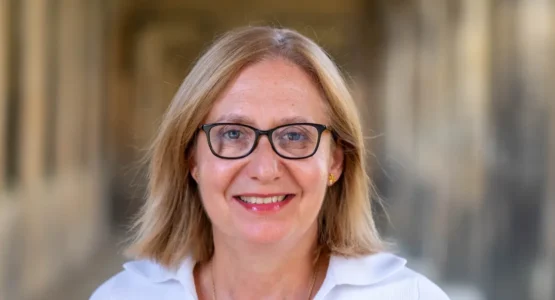Helen Pattinson (1998) is Director of Fundraising and Communications at War Child UK, having previously held fundraising roles at ActionAid and UNICEF. In this blog she tells us about her motivations for pursuing a career in the charity sector and discusses the impact the earthquake in Syria and Turkiye and the war in Ukraine have had on her work.
What first encouraged your interest in charity work?
I can still remember doing house to house collections with my mum as a child for Christian Aid and the NSPCC. Looking back now there was something captivating about this experience – the time my mum was willing to invest, the practice of asking for money, the generosity of strangers, the willingness to help other people, and I suppose the fact that mum took me along too. I remember my parents being involved in social action projects and extensive volunteering; I have a clear memory of our lounge being full of things to be sent to those who needed them, and I think the desire I had to help others was profound. My sister trained as a medic, which is a very direct and inspirational form of helping other people every day. For me, as a professional fundraiser, it’s about being the catalyst to help others. I got my first job in the charity sector without really understanding what it was, although the desire within me to fundraise was very strong. My role was in direct marketing and the organisation had already booked me in to do a post-graduate diploma before I started, so I fell into this being my professional discipline. But in hindsight it was perfect – I love the psychology and science behind marketing, the ability to measure, test and refine and, perhaps most of all, to understand people and why they behave in certain ways.
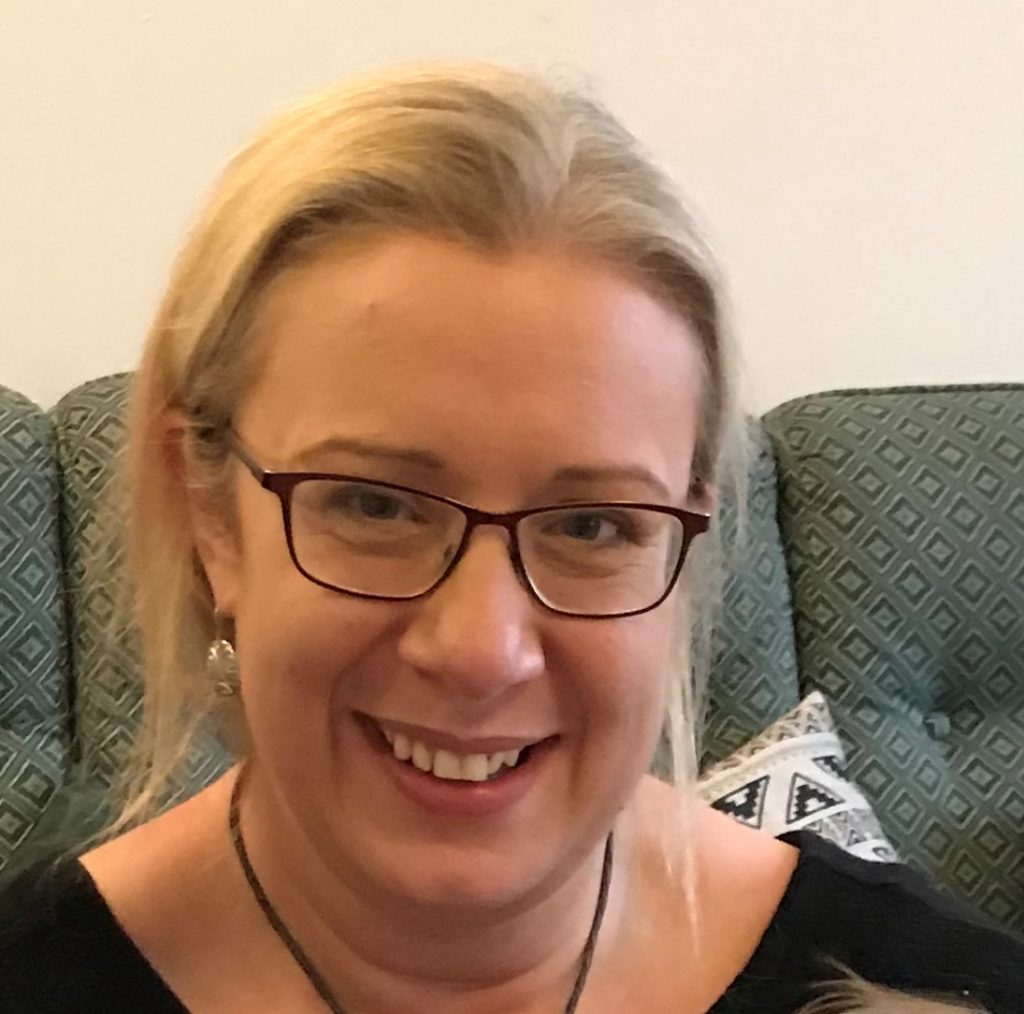
Do any particular career highlights stick in your mind?
I’ve been working in fundraising for over 20 years now, and it would be hard to dispute the biggest ‘high’ being anything other than leading the UNICEF creative collaboration with the Glasgow 2014 Commonwealth Games opening ceremony. We needed to inspire the watching world to give money in the middle of a party (not a conventional backdrop to fundraising!) and ended up raising £3.7 million in less than 40 minutes, with 10% of UK TV viewers responding. It was by no means certain it was going to work and is probably the most nervous I’ve ever been. In terms of highs, of course there is the satisfaction of a big gift coming in, or particularly one that you’ve secured because of your direct involvement. Other highs include the campaigns I’ve worked on earning industry recognition through awards and working with some very high-profile celebrities. But none of these quite touch the real highlights.
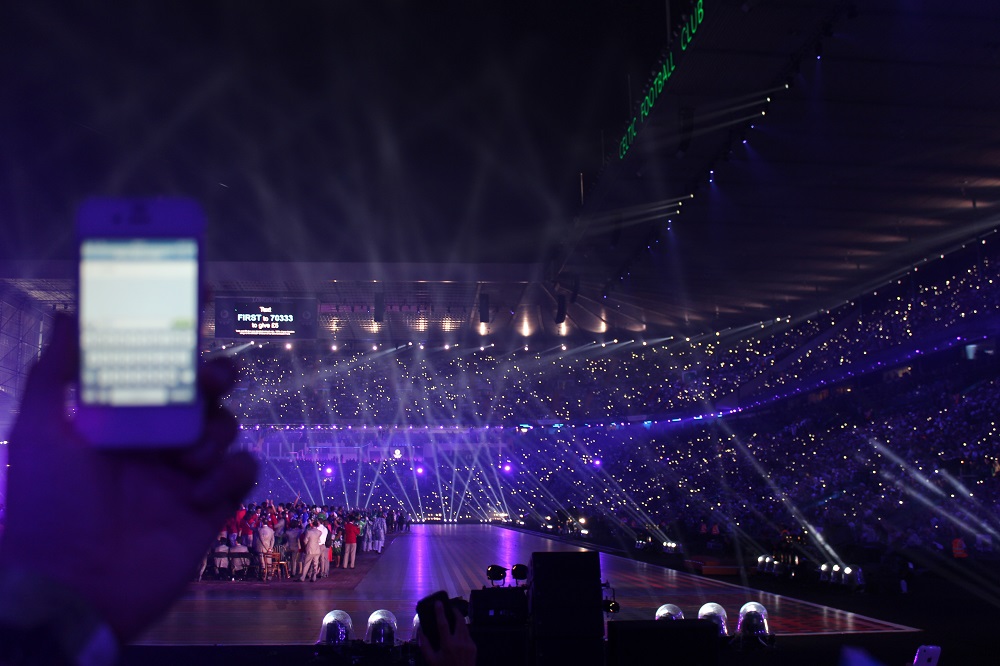
I’ve travelled across the world for content and communication trips and seen some inspirational work, including travelling to Nepal just days after the earthquake in 2015 and working with Chris Hoy in Malawi on a rural healthcare project made possible by bike. His bike, which was very basic, broke during filming and he never let me forget it! It’s hard to call it a highlight, but watching the boats come in on the shores of Lesvos was unforgettable. It’s tough to imagine how bad things must be when your only option is a treacherous boat ride in a precarious dinghy. As people arrived on the crowded, flimsy boats, some were weeping, some rejoicing, some still vomiting, some had fainted and some were praying. Watching it you felt very small indeed. You realised how little you had understood of the words ‘hope’ and ‘safety’ before that moment. But the personal highlights for me will always be the people I’ve met. On the dusty floor of a tent in a refugee camp, or under a tree in a rural village in Africa, against the backdrop of shooting in an apartment block in Gaza, listening to the stories that the world needs to hear and looking into the eyes of people who’ve been through the unimaginable. The stories that would be otherwise untold. The human connection is so powerful. It changes you, and that’s certainly been the greatest privilege of my career and what I treasure the most about my job.
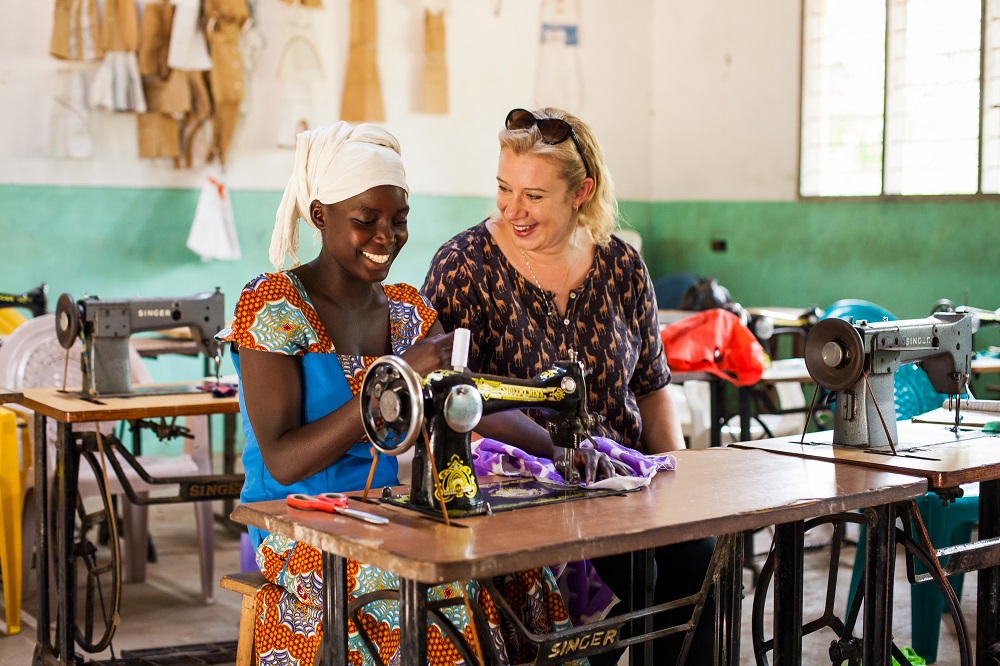
What are your current priorities at War Child?
My current role is Director of Fundraising and Communications at War Child. It’s a really eclectic role and I love that about it. We’ve just finished a two-week series of gigs for The BRITs, in partnership with Mastercard, putting on shows with everything from The 1975 to Sugababes! And my focus in the last two weeks has been leading our fundraising response to the tragic earthquake in Syria and Turkiye. 12 years of deadly conflict in Syria means the people there have had tragedy layered upon tragedy – utterly heart-breaking. That will continue to be on our agenda for many months and years ahead. As a member of the senior leadership team, I also have a corporate role in leading the charity too; managing risk, understanding security in fragile contexts like CAR and DRC and contributing to how we are going to continue to reach women and girls in Afghanistan, despite the authorities there banning women from going to work.
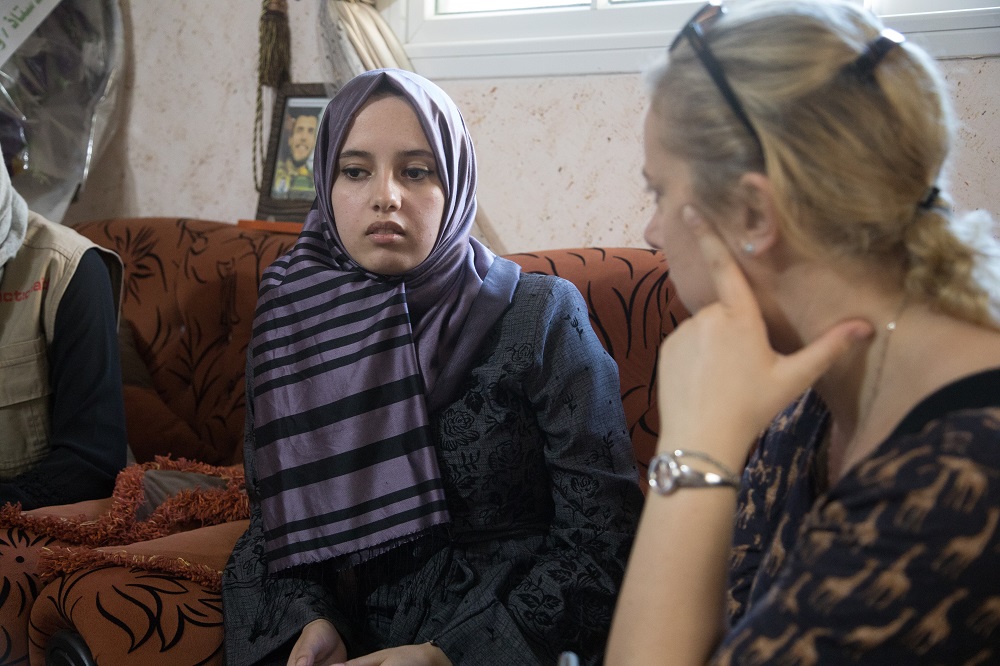
We’re not a typical charity – my biggest aim for the fundraising and communications team is to ensure that the people who support us are inspired and filled with hope about what is possible, not depressed about what is not. We challenge ourselves to come up with innovative ways of raising funds. I’m currently working out how we might get traction in the world of fine art and film, and exploring connections with people who know these industries and can advise us. I’ve just returned from a trip to Ukraine with Vanessa Kirby and Gillian Anderson to introduce them to our work. In fact we’ve just asked Gillian to be our new ambassador (she said yes!) so I’ve been leading our communication plan for that too.
What impact has the war in Ukraine had on your work?
As I write this post, we are approaching the one-year anniversary of the war in Ukraine. A year ago War Child had no presence in Ukraine at all. We’ve rapidly scaled up, working with local partners in Ukraine, but also Moldova, Hungary and Romania to be able to respond to this humanitarian crisis. We’re pushing ourselves to make sure we have presence where the fighting is at its worst and where children need us the most, whichever side of the conflict line that is. Our priority is to ensure children receive psychological first aid to be able to process the grief and trauma they have experienced and be able to have hope for a future. We’ve worked with the ministry of education in Ukraine to ensure that every child there can continue their education through e-learning, which is pretty amazing.

Being in Ukraine was tremendously emotional for me – it’s the first time I’ve been in the field since becoming a mother. There was undeniably extra poignancy to the stories of giving birth when the hospitals have been bombed out, or of homes destroyed, or women bravely being there for their children when they are so utterly scared of what will happen next. Of course it makes me grateful for all I have, but more than that it ignites a passion to be able to share the voices of these women. One lady, Shizhana, told me: ‘I want the whole world to gather and stop the war.’ She had lived for three months in a flooded underground basement where small children literally needed to be held aloft because of the water. The community built a wooden platform so people could sleep in three hour shifts. The elderly returned to their flats and risked the bombs, aware that they weren’t able to live standing up for hours at a time up to their knees in water. At 33 weeks pregnant, Shizhana became severely ill with pneumonia. After a terrible ordeal, I met her 8 months later in a War Child shelter where her family had warm beds, food to eat and the whole family were receiving psychological first aid for all the invisible wounds that war inflicts on citizens. Shizhana, and countless others like her, inspire me every day to do whatever I can to change the prospects for those whose lives have been caught up in conflict.



